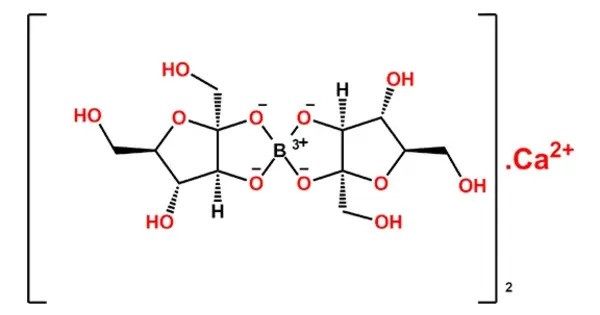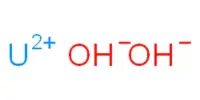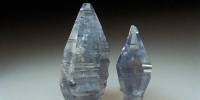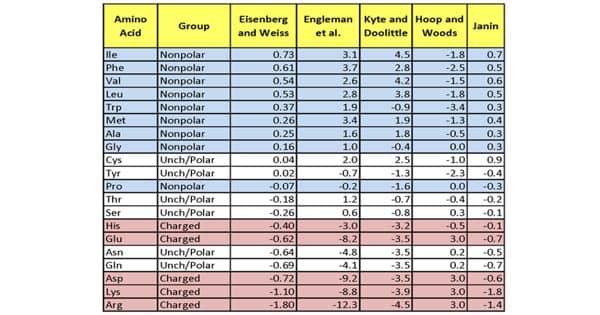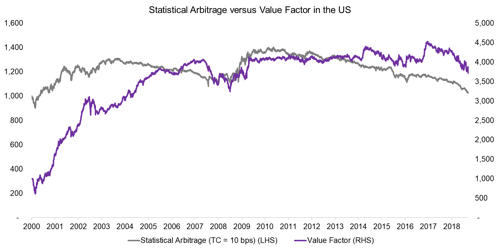Calcium fructoborate is a salt of an organoboron compound containing boron (and fructose and calcium). Its structural formula is Ca[(C6H10O6)2B]2. It is a naturally occurring boron compound found in fruits and vegetables. It’s often used as a dietary supplement for joint and bone health due to its potential anti-inflammatory and antioxidant properties.
It is naturally found in some plants, and is also manufactured and promoted as a dietary supplement. It is a naturally occurring boron-containing compound, often used as a dietary supplement.
Properties
- Chemical formula: C24H40B2CaO24
- Molar mass: 774.26 g·mol−1
- Molecular Weight: ~403.9 g/mol
- Structure: Complex of boron, calcium, and fructose; typically includes borate esters of fructose stabilized with calcium ions
- Solubility: Soluble in water
- Appearance: White to off-white powder
- Stability: Stable under normal conditions; hydrolyzes in aqueous solution to release boric acid, calcium, and fructose
Natural Occurrence
- Plant-Based Sources: Naturally present in fresh fruits, vegetables, and nuts. Boron in food is often in the form of sugar-borate esters, such as calcium fructoborate.
- Human Nutrition: Occurs in trace amounts in plant-based diets. Supplemental forms are used to deliver boron in a bioavailable and safe manner.
Supplement Use & Biological Activity
- Joint Health: Studies suggest it may help reduce inflammation and support joint function, particularly in osteoarthritis.
- Bone Health: Assists in calcium and magnesium metabolism, promoting bone strength.
- Antioxidant Properties: May have mild antioxidant and anti-inflammatory effects.
- Bioavailability: Higher than inorganic boron compounds due to its natural sugar-borate ester form.
